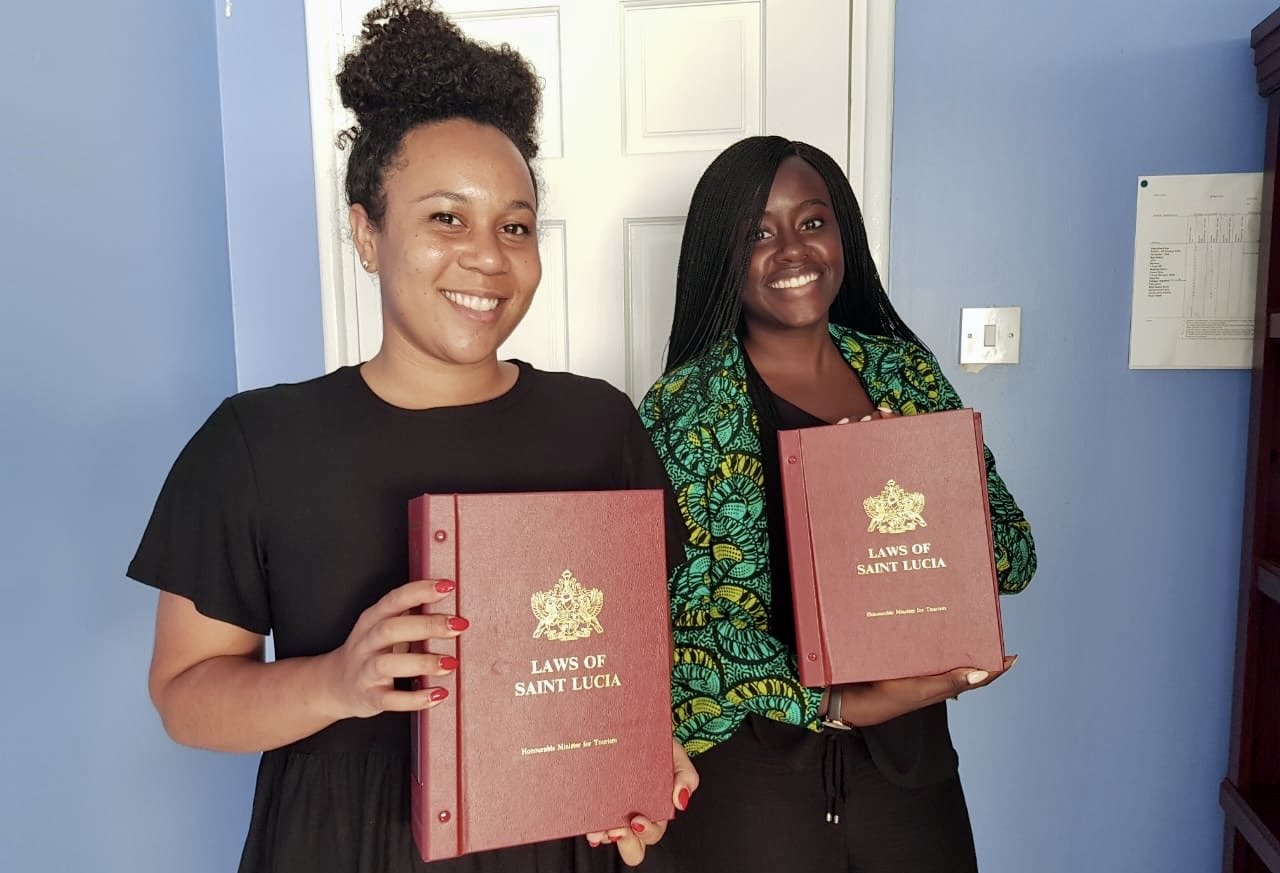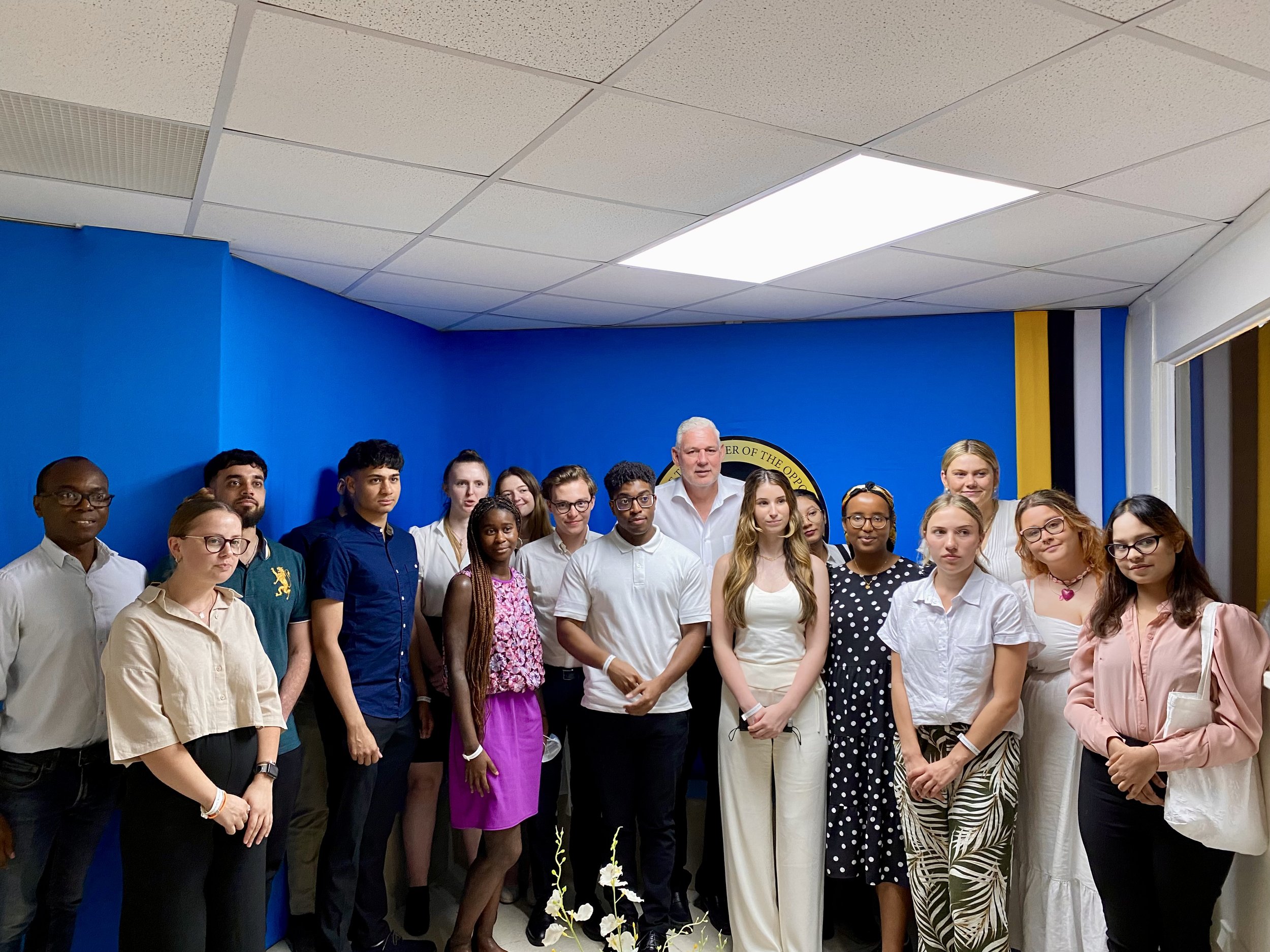FAQs
-
Don’t forget the essentials! Here are 10 things you must include on your packing list…
1. Appropriate clothing for work (Please ensure shoulders are covered and skirts are knee length or longer)
2. Laptop or tablet. All programmes require you to bring one with you.
3. Sunscreen and high-strength insect repellent (Please be mindful to select coral reef-friendly lotion if possible)
4. A towel for daily use and a towel for beach use.
5. Beach towel(s) as you will not be able to take accommodation towels to the beach
6. Passport
7. Copy of your Caribbean Elective confirmation
8. Pocket-size form of ID such as a Driver’s License
9. Health insurance/travel insurance documents printed
10. List of any medications you use
-
We know you’re counting down the days but what will actually happen when you arrive in Saint Lucia? Once you get off your flight, it’s time to go through immigration. You will need to prove that you have filled in your pre-arrival customs form. Click here to view the form. Once you have cleared immigration, customs and picked up your luggage then head out the arrivals doors to find our driver who will be waiting for you with a sign. The arrivals area is often very busy so please take your time to locate our driver. If you do not see anyone at first please wait in a visible spot so we can find you.
Once you have found our driver then you will be transported up to the north of the island where our accommodation is located and where most of our project work occurs. This is usually a 90 min drive.
Upon arrival, you will be greeted by accommodation staff or a Caribbean Elective representative and shown to your room.
After a little time to relax and settle in you will receive our safety briefing and induction. You may choose to head into Rodney Bay to find something to eat after this or some students want to head to bed straight away.
-
In Saint Lucian society it remains very important to dress professionally. You should respect this. But, you should also dress being mindful that it is very warm so pick light and breathable fabrics.
Here are some key points…
Women must dress modestly with their shoulders covered. String shoulder straps are not acceptable and mid-riffs must also be covered.
Trousers should be full in length and skirts must sit just above the knee or be longer.
For men, chinos, polo shirts and buttoned shirts are a smart choice.
Shorts are not allowed for work.
Smart trainers are acceptable but you must bring at least one pair of smart shoes.
You must bring at least one very smart outfit in case of a formal meeting or meeting a VIP. This does not have to be a suit but must be smart. Particularly those on the Law and Politics programmes.
Students working in clinical settings should always dress modestly and bringing scrubs is advisable.
-
When you arrive in Saint Lucia you will need to be processed by immigration officers as any traveller normally does. Please remember the purpose of your trip to Saint Lucia is for volunteering. We have had students in the past make the mistake of saying they are in Saint Lucia to work, this is incorrect and you need a visa to take up paid work in Saint Lucia. You may also be asked to provide an accommodation address and contact details of a person looking after you. Use these details…
Caribbean Elective House, Old Military Road, Gros Islet, Saint Lucia
Shernice Eugene, Destination Manager, Caribbean Elective. Phone:+1758 485 9106
-
In the first instance, we recommend you contact Natalie who will be able to support you. Contact details for our team are shown our “Meet the team” page.
-
It all depends on what day is your first full day. In most cases, your first day will be a relaxation and acclimatisation day. You will have time off to settle in.
On your first day, we will wherever possible help you get to the local shops so you can do a grocery shop and also run any other errands such as setting up a local phone sim if you would like to.
Your arrival induction which happens in your first 24 hours in Saint Lucia will help set the scene more for your trip and help you settle into Saint Lucian life. You will also receive a full induction into your programme during your first working day which will be provided to your group by the programme lead.
-
It’s up to you. Many students do choose to get a local SIM. Local networks are FLOW and DIGICEL. Both offer very reasonably priced short-term deals. Ask one of our team in Saint Lucia for help in getting a SIM when you arrive.
You will need to take your passport with you to prove your identity when you buy your SIM.
-
We recommend you bring some cash with you, the currency is Eastern Caribbean Dollars (XCD). In most cases, you will need to order this online for collection or delivery. John Lewis and the Post Office are offering very competitive rates at the moment. Cards are widely accepted in Saint Lucia.
-
Saint Lucia uses the same 3-pin plug as the UK.
-
It is hard to predict because everyone has different spending habits but using our experience we estimate a weekly budget of £100-130 to cover the essentials such as your food shopping, a couple of short taxi rides and once or twice a week going out and buying something affordable to eat for example at local food outlets and BBQs which offer good local food at reasonable prices.
Costs of eating out in the evening range dramatically, you can eat very well at local places for £8-12 or can really spoil yourselves at local hotels and luxury venues for significantly more. You do not need to budget for laundry or domestic bills apart from buying laundry powder etc.
-
For a more in depth look at activity costs we recommend you visit out “Things to do” page.
-
As is the case with any trip you will ever take around the world each location brings its own challenges. It’s important to use common sense and make smart decisions.
When you arrive in Saint Lucia we will give you our induction and safety briefing. During this briefing, we will give you all our recommendations on how to live safely and engage with communities successfully. If you listen to the advise of our experienced and knowledgeable team then you put yourself in the best possible place to have a very fun and safe trip.
The UK Government states that “most visits to Saint Lucia are trouble-free”. Click here to view the latest guidance.
-
Temperature is consistently high between 27-30 Celsius.
Rain showers are usually heavy when they occur.
Sun is very intense and sun cream is recommended at all times. Sunstroke is very common.
Sunset is consistently early at around 18:30
-
Generally, we try to stick to working days of 9:00-15:00. Although, sometimes this does vary when the activities of the day require this.
Programmes such as Law and Politics each have their own office space which is used as the programme base for learning and work. Often in the morning students on these programmes will go to their respective bases which are in the Castries area.
Every one of our programmes will also spend time out and about on visits. these could be to meet a VIP, find out more about a particular organisation or even tour important sites such as Parliament.
-
Absolutely. Saint Lucia is an incredible island and we want to give you time to explore.
On weekdays, you will have free time from the end of your working day which is usually around 15:00.
Weekends are free time for you to use and enjoy.
-
Emergency services: Call 999 for Police and 911 for Ambulance.
Contact any member of the Caribbean Elective team
Contact details for the British High Commission in Castries, Saint Lucia
Contact details for trusted local drivers
Contact numbers for a variety of local police stations can be found on this useful website.
-
Often students who have received funding support from their uni need us to sign a form to prove they have completed their placement. Please print this before you leave and bring it with you. Your programme leader will be happy to sign it for you.
-
Each of our programmes has a dedicated programme lead employed by Caribbean Elective. You will report to this person during working days and they are also someone you can go to if you need any support.
If you are joining us for a Medical Elective placement then your placement lead is a hospital member of staff.
-
Don’t worry, contact Shernice or Natalie from our team and we will be able to help you get in touch with the British High Commission who can support you.
-
There is one in the area where you are likely to spend most of your free time. Rodney Bay
The emergency phone number for Police is 999 and for Ambulance is 911.
-
As with most things, if you need some support please contact a member of our team. There are a number of local clinics and major hospitals which you can use. Be sure to take your travel insurance with you.
We will be able to support you and help get you to a clinic if you are unwell so please contact our team.
The nearest local clinic to our accommodations is the Gros Islet Poly Clinic, it is advisable to be there just before the opening time at 8AM as it can get very busy.






